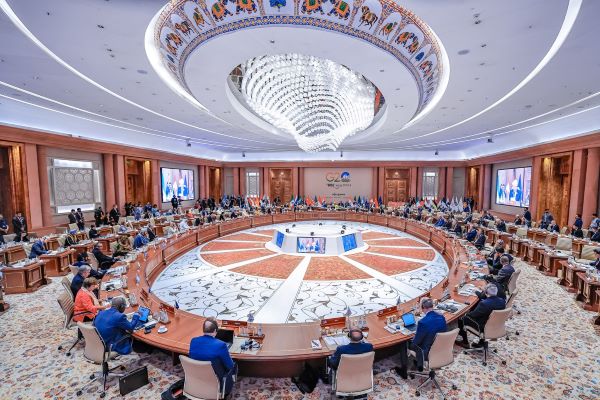Forging Alliances in Mobility: Why Europe Needs Chinese Expertise in Electric Vehicles
By Qaiser Nawab

The 2023 Rhodium Group report on Chinese Foreign Direct Investment (FDI) in Europe reveals significant trends shaping the EV landscape. Chinese FDI flows into Europe, amounting to €7.9 billion in 2022, reflect a stabilization following pandemic-era fluctuations. Investments are now focused on strategic sectors, with EVs, clean energy, and semiconductors taking precedence.
One critical finding is the diversification of Chinese investments within the European EV ecosystem. Beyond high-profile acquisitions, such as the purchase of Volvo Cars by Geely in 2010, Chinese firms are now investing in manufacturing facilities, battery supply chains, and advanced research collaborations. Notable examples include CATL’s decision to establish a battery factory in Germany and BYD’s increasing footprint in European markets. These investments signal a shift from acquisitions toward more integrated partnerships aimed at long-term market penetration.
This evolution is not accidental. Chinese companies recognize that Europe, with its ambitious climate goals and large consumer base for premium EVs, is a vital market for growth. Simultaneously, European governments and automakers face mounting pressure to accelerate their EV transitions—a goal that will be difficult to achieve without Chinese expertise in batteries, AI, and cost-efficient manufacturing.
Batteries are the cornerstone of the EV revolution, influencing range, performance, and sustainability. According to the Rhodium report, Chinese manufacturers like CATL and BYD dominate the global battery market, accounting for more than 70% of global lithium-ion battery production. This dominance is underpinned by innovations in energy density, cost reduction, and recycling technologies.
Europe, in contrast, remains heavily reliant on imported batteries and raw materials, despite efforts to develop its own production capabilities.Currently, 78% of its lithium is sourced from Chile, 68% of its cobalt needs are met by the Democratic Republic of Congo (DRC), and 47% of its natural graphite demand is supplied through exports from China. Initiatives like the European Battery Alliance aim to reduce this dependency, but the scale of China’s lead is daunting. Chinese battery manufacturers have perfected high-density, cost-effective technologies, while also pioneering recycling processes to reduce waste and environmental impact.
Rather than viewing this as a challenge, European automakers should see it as an opportunity for collaboration. Partnerships with Chinese battery producers could localize production, reduce supply chain vulnerabilities, and accelerate innovation in areas like solid-state batteries and second-life battery applications.
One of the most promising aspects of Chinese-European collaboration lies in the intersection of engineering and digital technology. Chinese EV firms have mastered the integration of artificial intelligence (AI) and big data into vehicle design, enabling advanced features such as predictive maintenance, autonomous driving, and personalized user experiences.
European automakers, while renowned for their engineering excellence, lag behind in digital integration. Collaboration could bridge this gap. For instance, European companies could leverage Chinese expertise in fleet management systems, which optimize logistics and reduce operational costs, to enhance their offerings in shared mobility and commercial transport.
Moreover, joint ventures could focus on creating new EV models that marry the best of both regions: European craftsmanship and design precision with China’s AI-driven functionalities. Such vehicles would appeal not only to European consumers but also to global markets, particularly in regions like Southeast Asia and Africa, where both Europe and China have strategic interests.
Despite the clear benefits of collaboration, skepticism persists in Europe, where Chinese investments are sometimes viewed through the lens of geopolitical competition. Concerns about intellectual property, market dominance, and data security have led to increased scrutiny of Chinese acquisitions and partnerships.
While these concerns are not unfounded, they risk overshadowing the transformative potential of collaboration. European policymakers and businesses must adopt a balanced approach, ensuring that partnerships with Chinese firms are structured to protect critical technologies while fostering mutual growth. Transparent governance frameworks, joint research initiatives, and co-investment models could help build trust and mitigate risks.
Both Europe and China have made ambitious commitments to sustainability. Europe’s Green Deal and Fit for 55 package aim to achieve climate neutrality by 2050, with aggressive targets for reducing emissions in the transport sector. China, under its dual-carbon goals, seeks to peak emissions by 2030 and achieve carbon neutrality by 2060.
The EV revolution is a once-in-a-generation opportunity to reshape global transportation and energy systems. For Europe and China, collaboration is not just an option—it is a strategic necessity. By combining their strengths and addressing their weaknesses, they can create an ecosystem that accelerates innovation, enhances sustainability, and benefits consumers worldwide.

Author Bio:
Qaiser Nawab, a dynamic Global Climate Youth Leader, played an active role in the proceedings of COP- 26, 27, 28 and 29, currently serving as President of the Belt and Road Initiative for Sustainable Development BRISD.












Discussion about this post